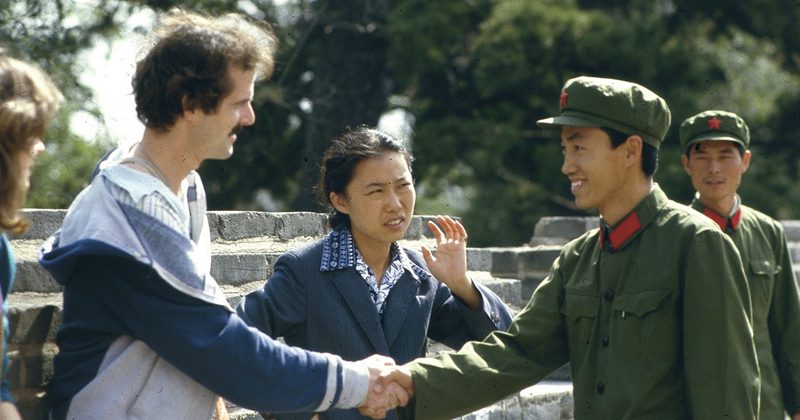A few years ago I was invited to a friend’s Chinese New Year dinner. I showed up nice and early, hair brushed, stretchy pants on, ready to consume my body weight in spring rolls and Peking duck. When I opened the door, my friend and her parents looked at me in horror.
‘You have to change your shirt.’ I looked down. I was wearing a plain black t-shirt. There weren’t any flaming skulls or gang insignia on it as far as I could see.
‘Why?’ I said.
‘You can’t wear black tonight. You’ll have to change.’
It turns out wearing black to Chinese New Year is like sitting under a ladder and breaking mirrors. Not only does it signify bad luck, it’s a major faux pas. Red is preferable (it signifies prosperity and good luck) but anything is better than black.
Confucius once said, ‘to know what you know and what you do not know, that is true knowledge’ (he must have been a hoot at parties). Turns out I didn’t know much about Chinese etiquette. I made it my mission to research as many manners as I could, so others wouldn’t have to suffer the same embarrassment. Here are the results.
Table manners
Good table manners are very important in Chinese culture. Apart from plain old common courtesy, proper etiquette invites luck and is seen as a sign of educational status. Don’t leave your chopsticks sticking upright in your rice and don’t use them to point, move bowls or spear food. Most formal meals in China are communal, so be prepared to share. But try not to ‘dig’ through the dish searching for the perfect slice of beef – this is considered bad manners.
Guanxi, Mianzi and Li
Before we get into details, it’s worth understanding some overarching principles of behaviour. Whether it’s imperialism, Confucianism or communism, Chinese history is all about hierarchies and belonging. This has evolved into concepts like Guanxi (fundamental relationships between family and friends), Mianzi (the idea of saving and losing face) and Li (maintaining composure and outer harmony). These three together govern everything from status in society to dinner table etiquette and the order in which the host serves tea. You’re not expected to fully understand these principles when ordering noodles at a local restaurant, but they give the following rules of etiquette a bit of context.
Greetings
Like most western countries, a handshake is the typical form of greeting in China, but a slight bow (from the shoulders) won’t go astray. Always stand when you’re being introduced to someone new and try and refer to them by their full name unless told otherwise. It may seem odd, but giving direct praise is considered poor form. One more thing: do not use the word ‘comrade’ as a substitute for friend.
Gift giving
Giving gifts is an important way of building Guanxi (fundamental relationships), but there are a few points of order to keep in mind. Don’t give a gift that would be impossible to reciprocate – this will cause a loss of face. Also don’t be surprised if the recipient doesn’t want to open and coo over your present in front of you; it’s more common to offer a polite thankyou then open the gift in private later. It’s also not unusual for traditionalists to decline a gift a few times before accepting. This doesn’t mean your new socks aren’t appreciated, it’s more a gesture of respect and humility.
Silence
Silence is golden, they say, and nowhere more so than China. It’s generally considered rude to interrupt someone when they’re speaking. Wait your turn instead. Silence between two people probably won’t be considered rude or awkward by locals, and it’s certainly preferable to dominating the conversation. It comes back to Chinese notions of privacy. In the West we generally value having our own physical space, office or room; in China it’s more about keeping your thoughts and emotions to yourself.
Gestures
It’s so easy to give offence with gestures. They’re often subconscious and deeply ingrained as habit. Pointing with an index finger is one you might want to unlearn in China – it’s considered quite rude. Gesture with an open hand instead. As in most Asian cultures, the feet are considered base, so don’t put your shoes up on a table or point them towards people when sitting down. Whistling is also bad form, and gestures like shrugging shoulders and winking will probably just cause confusion.
Strangers
It’s one of the strange ironies of Chinese culture that most of the rules above don’t apply to strangers. Etiquette governing family, friends and co-workers is very strict, but the opposite is true for people outside your inner circle. This is why travellers often complain of jostling in queues or on the street, indifferent waiters and general coldness from people they haven’t been introduced to. Locals don’t necessarily consider this behaviour rude, just normal, but don’t use this as an excuse to behave badly.
Practise your new table manners on one of our very polite Chinese adventures








